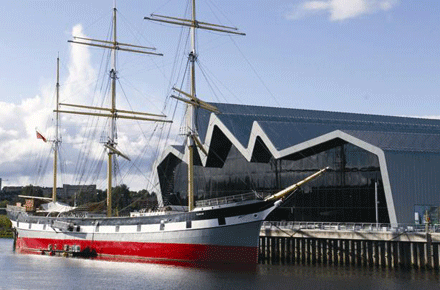Two Nottingham Trent University students give their verdicts on the dramatic building in Glasgow

About the scheme
This is Zaha Hadid’s £74m Glasgow Riverside Transport Museum located in a former shipyard on the banks of the River Clyde. Its architecture draws direct inspiration from the city’s industrial heritage. Facing the water, the facade is a glazed curtain wall encased within a thick steel frame.
Jessica Taylor-Tibbott’s verdict
Zaha Hadid’s Glasgow Riverside Transport Museum is a contemporary dynamic form, re-vamping the banks of River Clyde. The museum’s extraordinary jagged roof shows a modern interpretation of crashing waves on the former shipyard, as well as the ups and downs of weather conditions and man’s life whilst working there.
The pleated zig-zag captures the eye, providing movement across the building following the steel frame, as if the heritage transport inside also has a new lease of life. In addition the steel frame anchors the museum into its environment.
Even though the Glasgow Riverside Transport Museum is vast, the glazed façade wall helps blend the building into its surroundings with reflection of the River Clyde, whilst the visitors inside are able to enjoy the tremendous views of Glasgow riverside.
Tom Smith’s verdict
Like Most of Zaha Hadid’s architecture, the Riverside Museum gives the impression to be pushing the boundaries of architecture and urban design. Although the building doesn’t appear to be to respectful to its context, it is very striking, therefore it would seem as though it would become as much of a public attraction as the exhibitions it holds.
Jessica Taylor-Tibbott and Tom Smith are architecture students at Nottingham Trent University.




























No comments yet